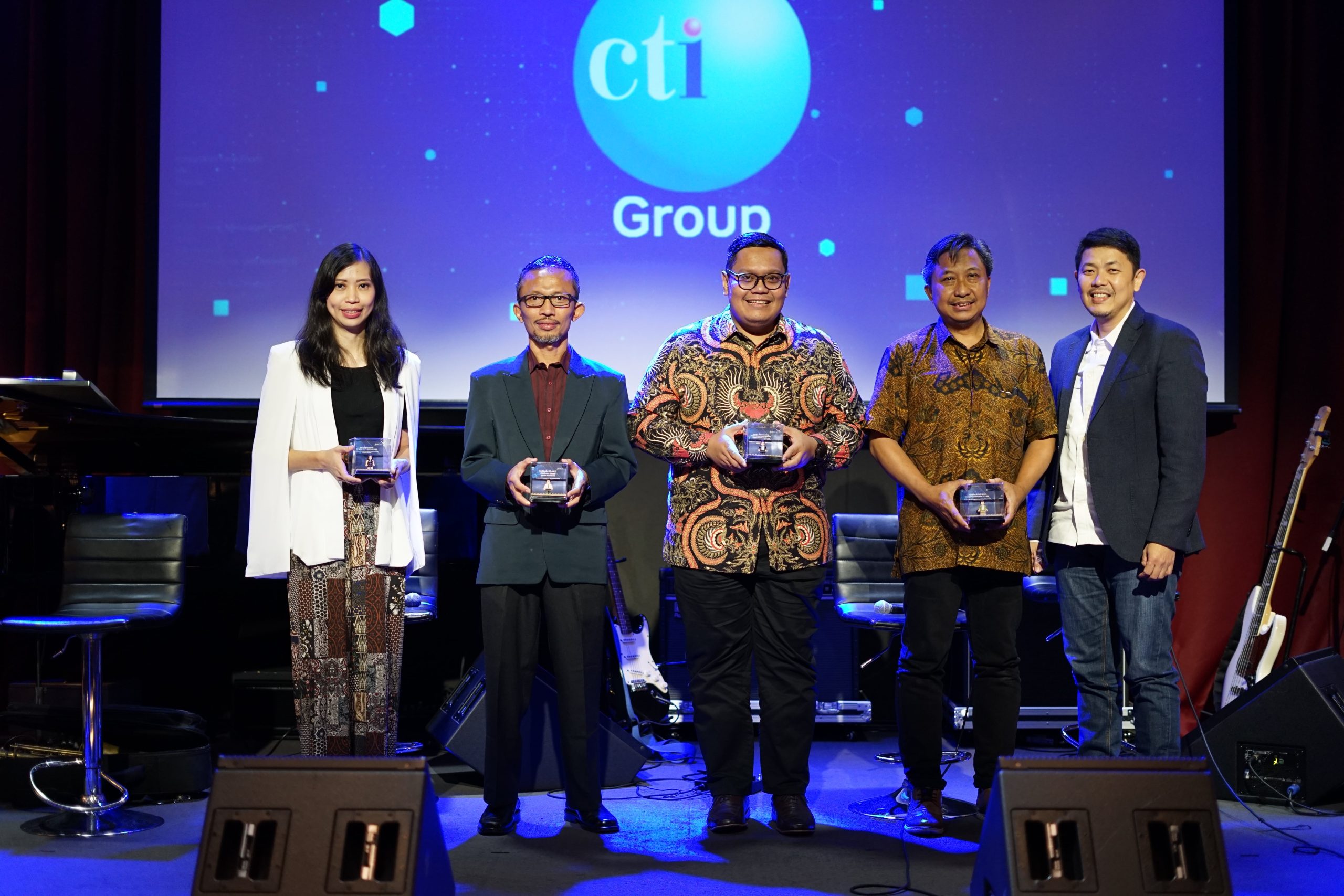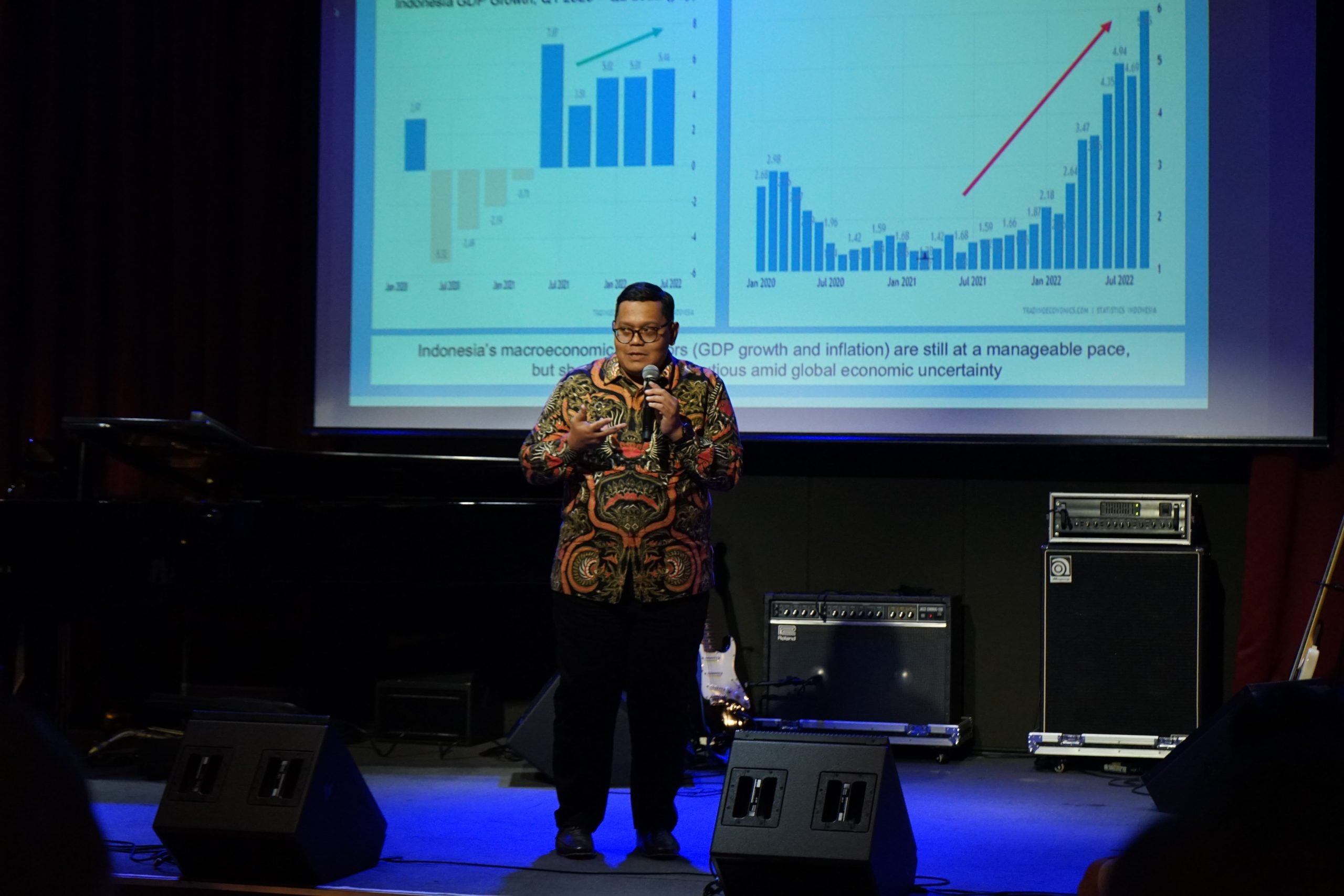Computrade Technology International (CTI Group) hosted the Golden Circle Club 2022 on Thursday, October 13, 2022. On this occasion, Fajar B. Hirawan, CSIS Economist and Head of the Economy Department, presented his session, “Maintaining the Momentum of Economic Recovery Amid the Threat of a Global Crisis.”
In his presentation, Fajar displayed the International Monetary Fund’s (IMF) World Economic Outlook (WEO) report, which estimates global economic growth of only 2.7 percent in 2023. Meanwhile, the IMF predicts that global economic growth would be only 3.2 percent this year.
Of course, this will pose a threat of a world economic recession, as well as the presence of Indonesia’s macroeconomic indicators and unstable inflation. This issue needs to be watched out for by the IT industry in the face of pressures and threats that might occur in 2023.
IT Industry Challenges in the Face of an Economic Crisis
Global economic circumstances are unclear owing to a variety of factors ranging from the US-China trade war to the advent of political crises such as the Russia-Ukraine war to China and Taiwan. These issues have affected global economic activity and commerce.
According to Fajar, there are three scenarios for Indonesia’s economic outlook: bearish (worst probability), mediocre (middle chance), and optimistic (best possible). To deal with this issue, it is vital to compare the global and domestic levels. GDP growth as well as the avoidance of growing inflation in the five major countries, namely the United States, China, Japan, India, and the European Union.
To answer this challenge, supply chain operations must be optimized to sustain the flow of logistics activities, which implies that mapping the IT industry’s supply and demand to supply sources such as semiconductors must not be disturbed.
Global Economic Threats Also Drive the Semiconductor Supply Chain Crisis
The global economy is becoming increasingly unpredictable as a result of a variety of challenges that have spawned new concerns, including a disrupted supply chain. This is owing to China, the world’s largest producer of IT equipment, facing an economic downturn and limits on semiconductor shipments from the United States in order to avoid selling them to China.
Fajar underlined the need of sustaining people’s buying power from commodity availability due to the availability of a good supply chain in order to get a favorable (bullish) result. One of them is to use technology to make the logistics sector more efficient.
Fajar revealed that IT is one thing that can increase productivity in terms of logistics. There’s no way we can manage such a large fleet if we don’t use IT.
“Technology can accelerate and improve the accuracy of existing processes in logistics and supply chains,” he said.
Furthermore, mapping supply and demand is the first process flow to be completed, and IT support is required to complete this process. “We now have a data deficit, and we cannot acquire and handle that data without the help of IT. We have now reached the era of big data, which may be supported by IT professionals,” he added.
More specifically, given the importance of IT as a catalyst for business players, the role of IT infrastructure solution providers such as the CTI Group is increasingly necessary given the uncertain future global economic conditions.
5 Tips to Avoid the IT Industry from the Global Economic Crisis

Fajar went on to say that there are five factors to ensuring that the Indonesian IT industry survives the prospect of a future recession.
First, authorities, in this instance the government, must recognize that the IT industry can aid and stimulate economic progress.
Second, there must be information and clarity about how populist policies and restricted imports would harm the IT sector. As a result of these two factors, and the third one, trust will arise from this sector player and other stakeholders.
Then the last two are talent and technology since IT sector players have two important points that can support and become one of the sources of the new economy as we hope that Indonesia will become a developed country in 2045.
Fajar also hopes that the IT industry can take advantage of its technological advantages to participate in the joint development of national digital infrastructure projects.
So, it can be concluded that the future of the national IT industry requires strong support from regulators to be able to develop well in the future, then the availability of adequate (talent) experts, as well as the development of the technology itself.
Read More: Edge Computing and Distributed Enterprise Explore Great Potential for Various Industries
Golden Circle Club (GCC) 2022 at a Glance

PT Computrade Technology International (CTI Group) as an IT infrastructure solution provider, chose the theme “Getting Ahead of Global Disruption: Mitigating Business Turbulence for Operations Tomorrow” for its annual event, the Golden Circle Club (GCC). The GCC event was held aimed at sharing information and exchanging experiences designed for IT industry players, in this case executives from companies that are business partners of the CTI Group, from Independent Software Developers (ISV) to system integrators.
Three competent speakers in their fields were invited to attend to discuss the topic, among others, Fajar B. Hirawan as Head of Economy Department of CSIS (Centre for Strategic and International Studies), Setijadi as Chairman of Supply Chain Indonesia, and Andries K. Indrajaya as Vice President of JNE ICT.
In addition, Rachmat Gunawan as President Director of CTI Group, also emphasized his commitment to continue to support and encourage innovation through the provision of information technology such as AI, hybrid cloud, big data, automation, and others through strategic collaboration.
Author: Ary Adianto
Content Writer CTI Group

